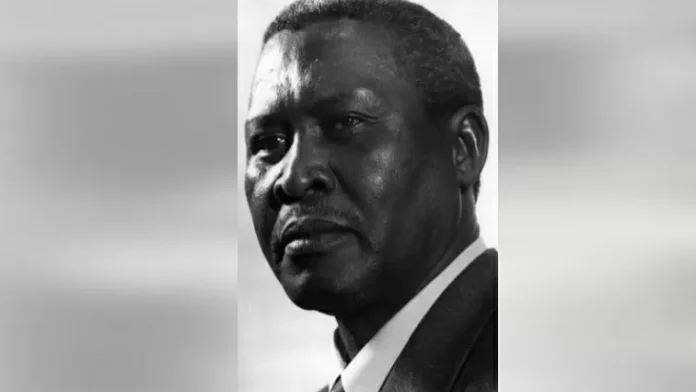On July 21, 1967, the world was shaken by the news of the death of Chief Albert Luthuli. The beloved leader of the African National Congress (ANC) and Nobel Peace Prize laureate had been struck by a goods train in his hometown of Groutville, South Africa. The news of his tragic passing spread quickly, leaving a nation in mourning and a legacy that would continue to inspire generations to come.
Luthuli was born on April 8, 1898, in the small village of Groutville, located in the KwaZulu-Natal province of South Africa. He was the youngest of seven children and grew up in a humble household. Despite the challenges of growing up in a racially segregated society, Luthuli excelled in his studies and went on to become a teacher.
But it was his involvement in politics that would define his life and make him a household name. Luthuli joined the ANC in the 1940s and quickly rose through the ranks, becoming the president of the organization in 1952. He was a staunch advocate for non-violent resistance against the oppressive apartheid regime and played a crucial role in the fight for racial equality in South Africa.
Luthuli’s leadership and unwavering commitment to the cause earned him the respect and admiration of people around the world. In 1960, he was awarded the Nobel Peace Prize for his efforts in promoting non-violent protest against apartheid. He became the first African to receive this prestigious award and used the platform to shine a light on the struggles of his people.
But on that fateful day in 1967, Luthuli’s life was cut short. He was walking along the railway tracks near his home when he was struck by a goods train. The circumstances surrounding his death remain a mystery, with some speculating that it was an accident, while others believe it was a deliberate act of sabotage by the apartheid government.
Regardless of the cause, Luthuli’s death was a devastating blow to the anti-apartheid movement and to the people of South Africa. His passing was mourned by people of all races and backgrounds, a testament to the impact he had on the nation. His funeral was attended by thousands, with tributes pouring in from leaders and activists from around the world.
But even in death, Luthuli’s legacy lived on. His teachings of non-violent resistance and his unwavering determination to fight for justice and equality inspired a new generation of leaders, including Nelson Mandela. His name became synonymous with the struggle against apartheid, and his memory continues to be honored and celebrated in South Africa and beyond.
Today, Luthuli’s home in Groutville has been turned into a museum, dedicated to preserving his memory and educating future generations about his life and legacy. His name is also immortalized in the Luthuli Museum in KwaDukuza, which showcases his contributions to the anti-apartheid movement and the struggle for human rights.
As we reflect on the life and death of Chief Albert Luthuli, we are reminded of the sacrifices he made and the impact he had on the world. He may have been taken from us too soon, but his legacy lives on in the hearts and minds of those who continue to fight for a more just and equal society. Let us honor his memory by carrying on his message of peace, unity, and equality for all.

